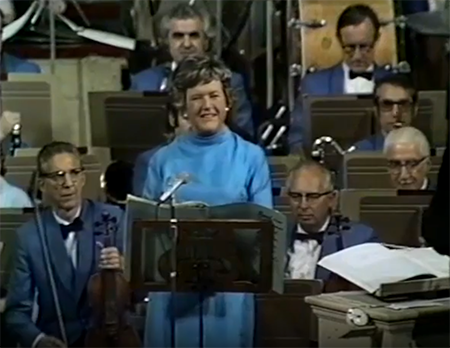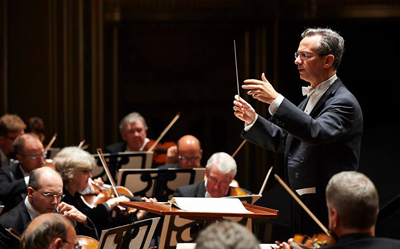by Daniel Hathaway
Tonight at 7:30, The Cleveland Orchestra plays at Severance Music Center under Dallas Symphony music director Fabio Luisi (pictured). The Orchestra joins countertenor Tim Mead in the U.S. premiere of Silvia Colasanti’s Time’s Cruel Hand and will mightily move the air in Mandel Concert Hall with Anton Bruckner’s Symphony No. 7 (repeated on Saturday at 8).
Note: the previously announced performance by the CIM Orchestra in Elyria is not happening today.
HEADLINES IN THE NEWS:
Trump Made Chair of Kennedy Center as Its President Is Fired (NY Times)
The president solidified his grip on the performing arts complex as the center’s longtime president, Deborah F. Rutter, was fired. Read the story here.
TODAY’S ALMANAC:
February 13 marked the baptism of Spanish composer Fernando Sor in Barcelona in 1778, the final curtain call of German composer Richard Wagner in Bayreuth in 1883, and the birth of American composer George Kleinsinger in 1914.
Sor is well-known to classical guitarists, who have probably improved their playing technique through the composer’s pedagogical works. Watch Jason Vieaux giving a lesson here on Sor’s Etude No. 6 in D, which requires “a spidery left hand.” And listen to Judicaël Perroy, who teaches at the San Francisco Conservatory and has performed in Northeast Ohio, play Sor’s Fantaisie élégiaque, Op. 59.
Wagner’s music is so ubiquitous that it hardly needs an introduction, and probably the less you know about the composer’s personal life, the better. Fans of Wagner’s Ring Cycle of operas who would prefer hearing the music without singers have former Cleveland Orchestra music director Lorin Maazel to thank for assembling The Ring Without Words.
Reviewing Maazel’s Telarc recording with the Berlin Philharmonic, a Gramophone critic wrote, “…audiophiles who like blazingly spectacular sound and plenty of adrenalin flowing in the music-making, should find this worth trying. Certainly the heavy brass sounds are very tangible.” Listen here.





